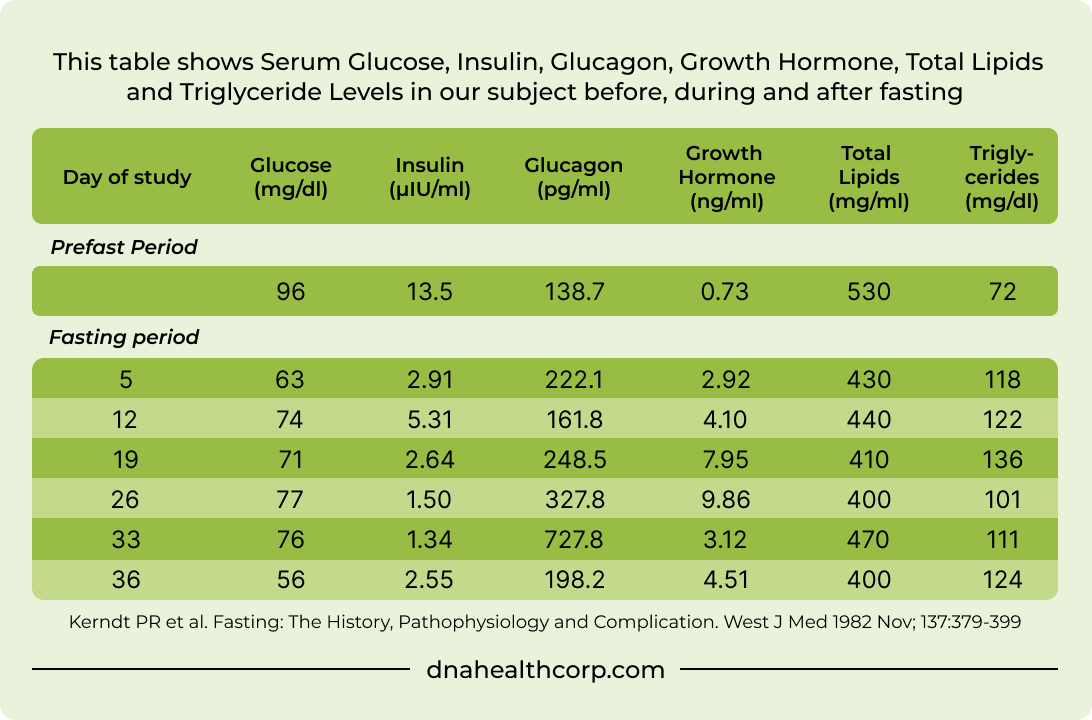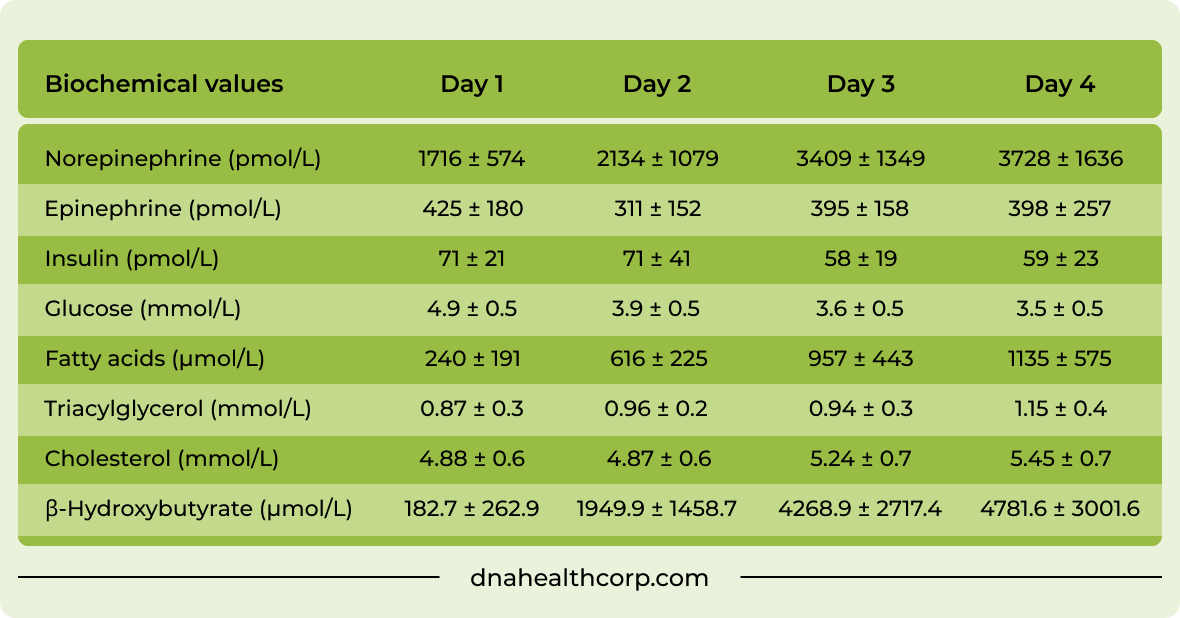DNA Health & Wellness
Longevity Monthly
April issue
The Fasting Paradox: preserve muscle, lose fat

I spoke in my January 2024 newsletter about why most diets fail and the potential pitfalls of the new GLP-1– Ozempic/Mounjaro – weight-loss craze – namely – muscle loss, slowing metabolism and rebound.
What if there was a way of losing weight, maintaining muscle and increasing metabolism – sounds too good to be true?
Let’s take a look at fasting.
There are many hormonal adaptations that occur during the process of fasting, the discussion of which is far beyond the scope of this article. However, let us focus on HGH (Human Growth Hormone). HGH is a hormone secreted by the pituitary gland and plays a pivotal role in preserving muscle mass and bone density, mobilising fats for fuel and symptomatically aids sleep and recovery.
HGH decreases with age and typically leads to higher levels of body fat, lower lean body mass and decreased bone mass (osteopenia). Conversely, we see improvements in all-of-the above when administering exogenous HGH in the form of hormonal replacement.
What happens to HGH when fasting ?
A 1982 study looked at the physiological effects of a 40-day fast. As would be expected, blood pressure decreased and both glucose & Insulin went down. The most interesting and counter-intuitive part is that HGH starts at 0.73 and peaks at 9.86 – a 1250% increase in HGH. Even after a 5-day fast we are looking at a 300% increase….Without supplements or drugs.

One of the major concerns cited about fasting is the loss of lean mass. This does not occur. In fact, the opposite happens – there is likely an increase in lean mass.
Fasting has the potential to unleash the anti-aging properties of HGH without any of the potential problems of excessive long-term HGH administration (cancer, high blood pressure, high blood sugar).
If you are yet to be convinced another 2000 study looked a subjects doing an arguably more reasonable 4-day fast.

There are many interesting details here, but the one I would like you to focus on is the increase in norepinephrine and the maintenance of epinephrine (collectively often referred to as (nor-adrenaline). Adrenaline increases energy and prevents the decrease in resting energy expenditure (REE) aka metabolism. REE increases more than 10% – The polar opposite of what happens with calorie-restrictive diets and GLP-1 medications. Instead, fasting revs up the body’s metabolism. VO2 also increases slightly indicating a greater capacity of the body for physical exertion.
So there is no doubt that fasting can be an effective ‘fat-loss’ strategy. As with anything in health, we have to be careful not to dogmatise with a one-size-fits-all approach; rather we keep it as another effective tool in the armoury.
However, it is important not to lose sight of the fact that you want to index health over just weight and that all interventions need to be applied in balance, personalised to the individual and the appropriate health-metrics tracked going forward. And finally, the key to any strategy requires an understanding of the science.
